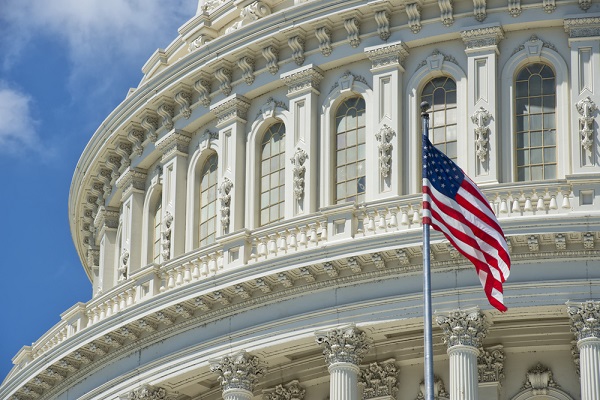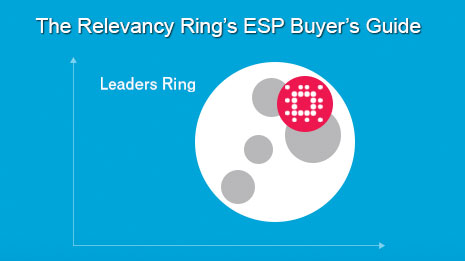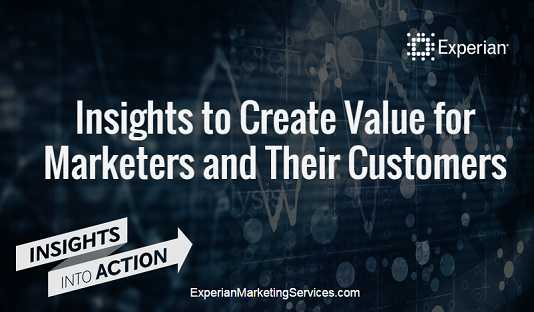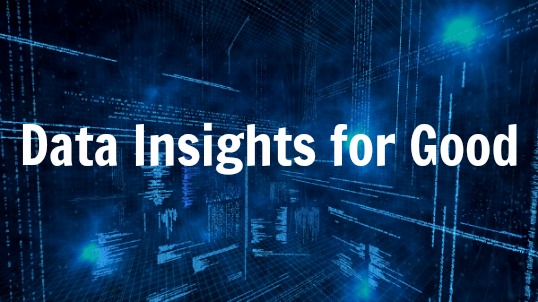Tech & Innovation

At Experian, we are continually innovating and using technology to find solutions to global issues, modernize the financial services industry and increase financial access for all.
DEI

Our deep commitment to social and financial inclusion is reflected in our workplace culture, our partnerships and our efforts to break down the barriers to financial equity.
Financial Health

Our initiatives are dedicated to getting tools, resources and information to underserved communities so that consumers can best understand and improve their financial health.
Latest Posts:

 We’re just a few months into a new year and already there are clear signs how the Consumer Financial Protection Bureau (CFPB) plans to further advance its regulatory authority over bank and non-bank entities across the credit ecosystem.
Here is a look at the top three priorities for the CFPB in this space:
We’re just a few months into a new year and already there are clear signs how the Consumer Financial Protection Bureau (CFPB) plans to further advance its regulatory authority over bank and non-bank entities across the credit ecosystem.
Here is a look at the top three priorities for the CFPB in this space:

 For the second year in a row, Experian Marketing Services has been named one of the top email service providers (ESPs) in the marketby The Relevancy Group. The Relevancy Ring — ESP Buyer’s Guide 2015 evaluates and ranks ESP vendors according to the satisfaction of several hundred marketers and the vendor’s ability to meet their challenges and goals through product functionality and innovation. The report also cites Experian Marketing Services for excelling in areas such as integration, omnichannel marketing and production services.
For the second year in a row, Experian Marketing Services has been named one of the top email service providers (ESPs) in the marketby The Relevancy Group. The Relevancy Ring — ESP Buyer’s Guide 2015 evaluates and ranks ESP vendors according to the satisfaction of several hundred marketers and the vendor’s ability to meet their challenges and goals through product functionality and innovation. The report also cites Experian Marketing Services for excelling in areas such as integration, omnichannel marketing and production services.

Launch of AdTruth Resolve simplifies cross-device audience management for marketers Experian Marketing Services today introduced AdTruth Resolve, a new technology designed to simplify the process of recognizing and engaging audiences across all devices and environments. AdTruth Resolve is designed for the multinational marketer that struggles to make smarter, more data-driven business decisions and keep up with today’s mobile-first consumer. AdTruth Resolve provides marketers with the means to reconcile and associate their existing digital identifiers — including cookies, device IDs, IP addresses and more — and then leverage that consolidated intelligence for visibility across devices. AdTruth Resolve represents another milestone in Experian Marketing Services’ long-term strategy to provide marketers with a ubiquitous, consistent and persistent link across all channels as part of the Experian Marketing Suite. Powered by a three-tiered identity-management framework, the Experian Marketing Suite’s Identity Manager gives marketers everything they need to persistently, accurately, effectively and respectfully recognize, resolve and reach consumers across all devices in all digital environments.

 Years ago, when data was the shiny new object, people talked a lot about it being organized into useful information that could drive actionable insights. It sounded great at the time. Unfortunately, at that time (and we’re talking about the late 90s and early 00s) the promise far outstripped the reality. However, in the past five years the responsible collection and usage of data has significantly evolved.
In fact, we see that 95 percent of companies feel driven to turn data into insight to understand their customer needs, find new customers and increase the value of each client. Today, successful businesses are drawing meaningful insights from data to impact almost every aspect of business operations.
Years ago, when data was the shiny new object, people talked a lot about it being organized into useful information that could drive actionable insights. It sounded great at the time. Unfortunately, at that time (and we’re talking about the late 90s and early 00s) the promise far outstripped the reality. However, in the past five years the responsible collection and usage of data has significantly evolved.
In fact, we see that 95 percent of companies feel driven to turn data into insight to understand their customer needs, find new customers and increase the value of each client. Today, successful businesses are drawing meaningful insights from data to impact almost every aspect of business operations.

 Experian announced today that its 34th annual Vision Conference will challenge attendees to “Think Big,” focusing on data- and analytics-driven solutions to attain quality business growth.
One of the industry’s leading events, Vision 2015 will feature Earvin “Magic” Johnson, Jr., legendary NBA athlete and businessman; Dr. Madeleine K. Albright, former U.S. Secretary of State; and James W. Paulsen, Chief Investment Strategist at Wells Capital Management, as keynote speakers. Vision 2015 will be held May 3–6 at the Gaylord National Resort in the Washington, D.C. Area.
Experian announced today that its 34th annual Vision Conference will challenge attendees to “Think Big,” focusing on data- and analytics-driven solutions to attain quality business growth.
One of the industry’s leading events, Vision 2015 will feature Earvin “Magic” Johnson, Jr., legendary NBA athlete and businessman; Dr. Madeleine K. Albright, former U.S. Secretary of State; and James W. Paulsen, Chief Investment Strategist at Wells Capital Management, as keynote speakers. Vision 2015 will be held May 3–6 at the Gaylord National Resort in the Washington, D.C. Area.

 Every day, 2.5 quintillion bytes of data are created – in fact, 90% of the world’s data was created in only the last few years. With the staggering amount of data available, we have an unprecedented opportunity to uncover new insights and improve the way our world functions. The implications of these new capabilities are perhaps nowhere else as crucial as within our government.
Public sector officials carry the great responsibility of conducting complex missions that directly affect our communities, our economy, and our nation’s future. The ability to make more informed, insightful choices and better decisions is paramount. Especially at a time of broader global unrest and uncertainty, Americans rely on our government to be transparent, fair, ready and to make the right decisions – our trust is in the hands of our elected officials and public servants.
Every day, 2.5 quintillion bytes of data are created – in fact, 90% of the world’s data was created in only the last few years. With the staggering amount of data available, we have an unprecedented opportunity to uncover new insights and improve the way our world functions. The implications of these new capabilities are perhaps nowhere else as crucial as within our government.
Public sector officials carry the great responsibility of conducting complex missions that directly affect our communities, our economy, and our nation’s future. The ability to make more informed, insightful choices and better decisions is paramount. Especially at a time of broader global unrest and uncertainty, Americans rely on our government to be transparent, fair, ready and to make the right decisions – our trust is in the hands of our elected officials and public servants.

Big data received a lot of press coverage in 2014; unfortunately, it wasn’t all kind. That’s too bad; because it’s not fair to lay the blame for every security lapse or e-mail misdeed squarely on big data. The truth is that some of the very technologies that are considered big data are in fact the same ones that best protect us from abuse. Like most technologies, big data can be used for good or it can be abused. However, I believe that the good that big data brings far outweighs any accompanying risks. While data security begins with common sense, and we must all deploy data security best practices, we should also appreciate the value in what big data offers.

It’s been an incredibly busy few months at Experian, not only with the debut of powerful new product features, but also the recent announcement that Experian now offers its members FICO® Scores through its direct-to-consumer products. Making FICO® Scores available through Experian products will allow consumers to boost their credit confidence more than ever before – allowing them to harness the power of a widely recognized family of credit scores to make wiser decisions about their financial futures. We think that knowledge might make those folks walk taller as they head to see their lenders.

With the New Year in full swing, it’s time to start turning thoughts to pulling together all the financial documents you’ll need to prep for tax time. A recent survey commissioned by Experian’s ProtectMyID shows that more and more consumers continue to file their taxes electronically – an estimated 81 percent of respondents plan to do so in 2015—but some are still unaware of the nature of tax-related identity theft (16 percent).


